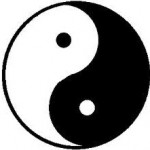This month I am in the middle of a series about why we need economists return to political science. Well, one economist, a liberal economist at that, has just done this. If you haven’t read my last two posts yet, “Political Economy: An Old System for a New Day” and “Checks and Balances For the Field of Economics” you may want to look at them.
I want to call your attention to an awesome editorial by economist Robert Reich in the Financial Times on January 16, 2012, called “We are all going to hell in a shopping basket”. Professor Reich has returned to the roots of economics, the field of “political economy” to analyze the present malaise in this country. (If the above link doesn’t work, type the full title in Google.)
In this editorial, Reich points to four economic groups in the US, each of whom has economic interests that may conflict with the other. Reich shows how two of these groups are in danger of becoming so powerful that they eradicate the rights of the other two groups. What is enabling this to happen? Reich points squarely to the Internet as the culprit. See if you agree.
In the spirit of the fourfold thinking the I’ve shown in posts about the Taijitu, the ancient Taoist “diagram of great power” (the Yin Yang symbol), Reich goes even further than merely talking about class conflict. He points out that these four groups of people are interrelated in an essential way – most Americans will belong to each four of these groups at one time or another in their lives. The four groups that we all belong to are: citizen, consumer, investor, and worker.
Reich’s insight is in keeping with the understanding expressed in the I Ching and other Taoist teachings about the interrelationships of all things in existence (the “ten thousand things”) owing to the common source from which they all come.
See my post “Fourfold Problem Solving” from October 30, 2011 for how the fourfold way of thinking works. There are also two practical examples from economics about understanding “How Buyout Funds Work” and the four groups of “Citizens Concerned About Sovereign Debt Crises” here and abroad.
Note: Also this week, Dennis Kucinich, Democratic representative from Ohio, on the second anniversary of the Supreme Court ruling called “Citizens United” which opened the doors to corporate financing of public elections, has introduced a constitutional amendment House Joint Resolution 100 to eliminate corporate spending on elections. See the link below for more on this story.
